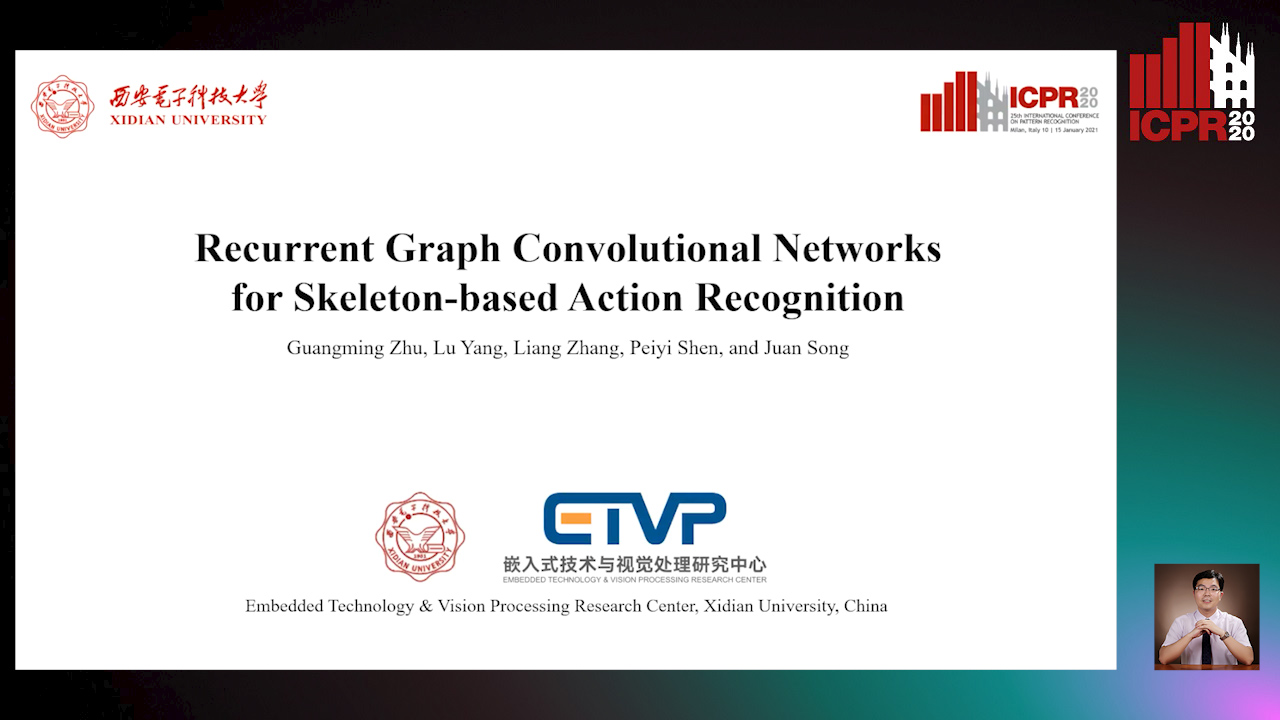Juan Song
Paper download is intended for registered attendees only, and is
subjected to the IEEE Copyright Policy. Any other use is strongly forbidden.
Papers from this author
Recurrent Graph Convolutional Networks for Skeleton-Based Action Recognition
Guangming Zhu, Lu Yang, Liang Zhang, Peiyi Shen, Juan Song

Auto-TLDR; Recurrent Graph Convolutional Network for Human Action Recognition
Abstract Slides Poster Similar
Human action recognition is one of the challenging and active research fields due to its wide applications. Recently, graph convolutions for skeleton-based action recognition have attracted much attention. Generally, the adjacency matrices of the graph are fixed to the hand-crafted physical connectivity of the human joints, or learned adaptively via deep learining. The hand-crafted or learned adjacency matrices are fixed when processing each frame of an action sequence. However, the interactions of different subsets of joints may play a core role at different phases of an action. Therefore, it is reasonable to evolve the graph topology with time. In this paper, a recurrent graph convolution is proposed, in which the graph topology is evolved via a long short-term memory (LSTM) network. The proposed recurrent graph convolutional network (R-GCN) can recurrently learn the data-dependent graph topologies for different layers, different time steps and different kinds of actions. Experimental results on the NTU RGB+D and Kinetics-Skeleton datasets demonstrate the advantages of the proposed R-GCN.